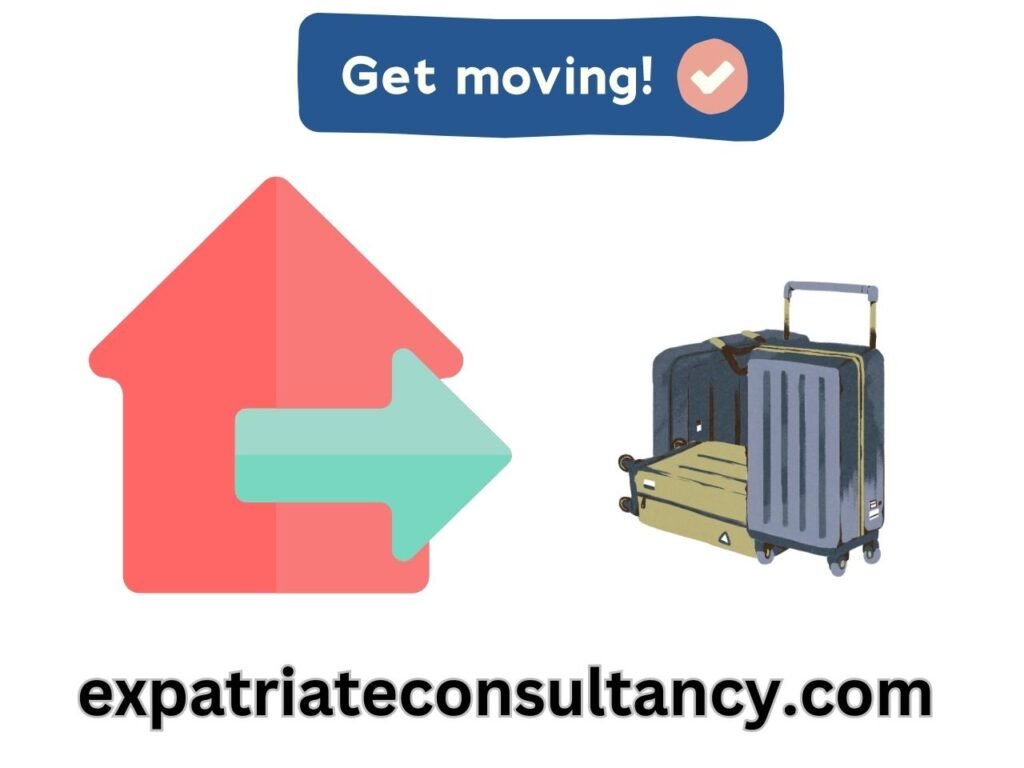Here Are the Key Takeaways I Learned From Moving Out at 18 From My Parents’ House
Moving away from home is not an unknown subject to us. My generation moved from one place to another more than any other in history. So this article about the pros and cons of moving out is something that for long I wanted to publish.
While our parents and grandparents (the Baby Boomers and Generation Xers) stayed in the same area for an average of 4 to 6 years, Millenials move every two years.
For many of us, moving away from home is an exciting time in our lives.
It gives you the chance to start over. However, it can also be one of the most stressful times in your life depending on where you are moving to, who you are moving with, and why you are moving in the first place.
I compiled this article with some of the best tips and insights I learned after fifteen years away from my hometown and 14 moves across three continents. Things like:
- Why is moving away from home so hard?
- Pros and cons of moving out of your parents’ house
- Can I afford to move out of my parent’s house?
- How to handle the anxiety about moving away from home?
- How to cope with moving away from family and friends?
- Other recommended reading for anyone planning to move far away and start a new life.
- The steps I will recommend, from the decision until the ride to the airport.
As with everything in life, context is important, and that is where we begin.
Life Skills and Advice on Moving Away and Start Over

I want to move out of my parents’ house!
Many of us will say this phrase at some point between our adolescence and our early thirties. Some people carefully plan this moment, while others do it on the spur of the moment when an opportunity appears on the horizon.
But when we take the time to breathe and analyze carefully whether it makes sense, there are a lot of things at stake.
We frequently overlook or ignore factors that are extremely important later in life.
In this article, I will discuss the benefits and drawbacks of moving out of your parents’ home. This is a decision I made when I was 18 years old, and I have seen many friends and relatives do the same since then.
Many were satisfied with the results, but some had regrets.
Check also: The Least Stressful Cities in The World
Why it is hard to move out of your parents?
First off, you should feel proud of yourself for even considering this challenge.
Not many people dare to step out of their comfort zone and test themselves in new situations. It’s normal to have these thoughts — don’t worry!
One of the main drawbacks is that you will miss your family, friends, and loved ones. You will miss family gatherings and having dinner with your parents. Maybe you are too young and you don’t want to be far away from them or maybe they simply don’t want to let you go.
Another drawback is that you may not know how to take care of yourself in some aspects and it may be difficult for you at first. For example, if your family has always cooked for you and has helped you with everything in the house, it may be difficult for you to prepare something other than fried eggs.
Also, many times living on your own can be more expensive than living with your parents because you have to pay rent, food, bills…
If all of these reasons are making you think twice about moving out, I have a word for you:
You are right.
Think twice. Even thrice. But don’t let the difficulties stop you. Use them as a guide to self-improvement and getting completely ready to move out, not as an excuse to cancel your plans. I will help you in the next paragraphs and with many useful links.
Remember that moving away can be very rewarding.
You will develop skills that no one taught you before and become more independent and autonomous. You will make new friends and open doors for massive opportunities.
All that starts with a plan, and like in every plan, we need to assess the pros and cons.
Pros of moving away from home:

- You get to learn how to fend for yourself and manage your money (both income and expenses).
- You will learn (or should learn unless you want to live in a squat) how to cook, clean, and take care of your living space. Maybe you will learn how to fix a leaking sink — it’s not that difficult.
- There will be silence and privacy (maybe not if you are a student sharing a dormitory).
- You will have space for yourself and your friends to hang out.
- You’ll be able to set your own schedule, so you won’t have to compete with your brother over who gets to use the shower first.
Cons of Living Far Away from Your Parents:
- You have to pay for everything, including rent, food, utilities, insurance, and so on. Your paycheck may not be as large as you think it is once you look at all the bills that need to be paid. According to Forbes, in 2021 the cost of moving out increased 15%.
- You must deal with any repairs that may emerge. If something breaks, such as the stove or washing machine, you must pay for its repair or replacement unless it is covered by insurance or a warranty agreement.
- If you are moving to a distant place, you will miss your old town, your friends and your family. A lot.
- If you are going to live in an unfamiliar place, there will be a learning curve until you adapt to the local way of life. You will eat at bad restaurants, take the wrong buses, and so on during this time. It is an inconvenient period, may cost you extra money, and can take weeks or even months.
- You will need to adjust to a new climate, and I mean literally new climatic conditions. For example, olive-skinned Latin Americans like myself may require special supplements during the winter in Europe. Here I explain how Vitamin D helped me to survive the European winter.
I Am Planning on Moving Out at 18… But Can I Afford It?
Even if you’re not sure where you’ll be living, estimating the basic costs of living on your own will help you determine if you can afford it or not. The main expenses you should evaluate are rent, food, utilities, transportation, and furniture.
In any list of pros and cons of moving out of parent’s house, financial planning of the whole process should take priority place! Especially if you are moving away by yourself.
Rent cost
This is your biggest monthly expense, and it depends on where you live and how much space you need. A small studio apartment in the city is more expensive than a large two-bedroom house in the countryside. However, you must ensure that wherever you live, the rent is within your means. Move into an apartment with a roommate or two if possible to reduce your monthly expenses.
Food expenses
Food is probably the second-largest expense after rent, so consider your budget carefully — especially if you’ve been living at home and eating most of your meals there. Americans spend an average of $550 each month on food, according to the most recent data. Eating out frequently can add up quickly, so plan accordingly.
Utility bills
You need utilities like electricity, water, heating (to discover how to save money on heating, check here), and internet to live comfortably, and there’s no getting around paying for these items every month. In some cases, they are included in your rent payment; if that’s not the case, ask if there are any utilities that are included (such as water). This will help reduce your monthly spending.
Depending on where you move, prices may require a habit change. For example, a shower will cost in Poland 6 times more than in Brazil.
Transportation costs
Transport costs can add up quickly — especially in big cities like London where the Tube or buses can be costly. While it’s not necessary to have a car in every city it’s often essential in smaller places. Here I wrote about the considerations to have in mind before buying a car.
Furniture and other expenses.
When you live at home, your parents are responsible for furnishing the place and purchasing new appliances when necessary. When you move out, those costs come out of your pocket — and they can be significant if you don’t shop around for the best deals.
In another article, I compared the cost of living for a single person in 6 different European capitals. The results are surprising.
Anxiety about moving away from our parents’ house
Anxiety about moving away from home is normal. Whether you’re moving to a new city, state, or country — or just to a new apartment across town — it’s completely natural to feel nervous and excited at the same time.
Moving Far Away from Home: Ways to Ease the Process.
- Connect with others.
If you move in with a roommate or group of roommates, try to strike up friendships with them. If you’re living by yourself, seek out social groups in your area that interest you, such as meetups for your favorite hobby or book club gatherings.
- Establish a routine
Maintain structure and routine. Have a regular schedule for sleep, meals, and study. This can help to mitigate feelings of stress, anxiety, and overwhelm.
- Talk to the grocery store cashier.
Take some time to explore your new city and make a point of trying something new each week — a new restaurant or coffee shop, for example — but don’t be afraid to set boundaries that make you comfortable. Asking about the new place to the grocery store cashier or other people you meet at random can speed up your adaptation.
- Try to understand the cultural differences of your new place.
I am a big fan of the 6-dimension model created by Dr. Geert Hofstede breaking down the cultural differences into 6 major areas. His team analyzed multiple countries in the world to better understand cultural differences. So far, their conclusions match almost perfectly my own experience living in Asia, Latin America, and Europe.
- Don’t be afraid to get embarrassed.
The joy of embracing (and occasionally failing) a new idiom and discovering a new place in the world is priceless. When I first moved to Poland, I faced three comical situations that taught me that being embarrassed isn’t all that bad.
Have in Mind the Reasons to Move So You Can Cope With Distance

In order to cope with leaving your family and friends, you must remember that you are doing this for a reason. It may be for your education (here is a list of the best countries in the world to study) or your career, but you must have a goal and stick to it. Keep that in mind when you are dealing with loneliness or homesickness abroad.
Why are you moving away?
There are different types of expatriates, something that is also valid for anyone that is moving out within a country. Understanding which type you are will help you to understand what you need and what you should avoid.
How to Prepare for a Mov Ahead of Time
You can start preparing yourself for moving away well before the day arrives. For example, staying in close contact with your loved ones through social media or by visiting before moving may make it easier for you to adjust once you have left. Start planning visits to see your family and friends as soon as possible so that you know you will be able to see them again later on.
Keep In Touch
Regular communication with loved ones is one of the best ways to cope with separation. If possible, try talking to your family and friends in person at least once each month by scheduling a visit or inviting them over for a weekend stay.
This will also avoid you to feel guilty later if the worse happens. This is a lesson I learned the hard way.
Take advantage of technology — but don’t get enslaved or restricted by it.
You might not be able to see your family and friends as often as you’d like, but there are many ways to stay in touch using modern communication devices such as smartphones and computers. Video chat applications such as Skype, FaceTime, or Google Hangouts are great for keeping in touch visually and can make you feel like you’re together even when you’re far apart.
Whenever possible, use apps that allow you to communicate visually or audibly, as written messages lack depth and dimension. Besides, excessive text messaging is making us dumber.
Moving away from home — Additional reading
I made a lot of mistakes when I left my country nine years ago to become an expatriate. Errors that could have been avoided if I had only known a few things.
Instead of giving up, I learned from experience during my relocations to the Middle East, Asia, and Europe, which forged a better version of myself.
This guide’s tips and methods assisted me in getting promoted, increasing my earnings, finding my wife, and starting my own business.
These rules are universal; they worked for me in South America, the Middle East, Asia, and Europe, and they will work for you as well.
- I wrote a guide with the best countries to start a new life abroad with no money. There you will discover what you need to begin a new life in places like Chile, Qatar, or Poland (I lived in all of them), among many others.
- Here is a list of 9 books to read before moving abroad, with useful tips and ideas to improve your daily life far from home.
- Sometimes it takes time for someone to find work in a new city, therefore in this article, I give you an idea about how to make money after moving out to a new place.
- Here is what you should do if you moved out and war erupted somewhere nearby.

Key Takeaways on the Hows, Pros and Cons of Moving Out

Moving out of your parent’s home is a significant step towards independence and self-reliance. It offers a plethora of new opportunities, from meeting new people and experiencing greater privacy, to making your own decisions.
Living independently means you set your own rules, from social activities to deciding when to stay out late. This newfound freedom can lead to personal growth, allowing you to become a person who can take care of yourself and navigate the world with confidence.
However, with independence comes responsibility. Moving out means managing living expenses, understanding credit scores, and ensuring ends meet. It’s essential to weigh the pros and cons, considering both the advantages and disadvantages.
While the idea of escaping house rules and gaining a sense of independence is appealing, there are challenges like moving costs and the need for self-sufficiency. It’s crucial to ensure you’re financially prepared and have a clear understanding of what living on your own entails.
In conclusion, leaving the nest is a monumental decision, one that offers a path to independence but also requires careful consideration of the responsibilities it brings. Whether you’re a recent college graduate or someone looking for a change, ensure you feel ready and have the resources to support this new chapter in your life.
I moved away from my parents’ home when I was 19. Since then, I moved another 14 times — meaning, almost one time per year. Sometimes, it was because I wanted, others because I needed due to do my career and later my business.
I moved away from my parents’ home when I was 19. Since then, I moved another 14 times — meaning, almost one time per year. Sometimes, it was because I wanted, others because I needed due to do my career and later my business.
10 Steps to move out
- Decide where you want to live
- Contact locals via social media or other means to learn about prices, lifestyle, and potential issues.
- Save enough money to pay your bills for the first month (at least).
- Get a job (or a paid internship if you are a student and have time for it). Every time I moved, I used Linkedin to find a new job.
- Know how much you can afford to spend
- Prepare a backup plan in case things don’t go as planned (Eg: expenses X percent higher than what you expect). Here I explained how to make a plan B when moving out.
- Plan your move and hire a moving company if necessary. Prepare your documents and sign the rental contract early.
- Use the signed rental contract to set up internet, water, and other utilities.
- Schedule a medical checkup and a blood exam. In your new place, doctors may not have access to your medical history. This is one of the untold but crucial life-saving tips for moving out.
- Pack your belongings.
First, subscribe (for free) to receive my articles directly in your inbox and receive as a special gift the digital book 20 Essential Hacks for Saving Money While Travelling.
Levi Borba is the founder of the Expatriate Consultancy, creator of the channel The Expat, and best-selling author.




